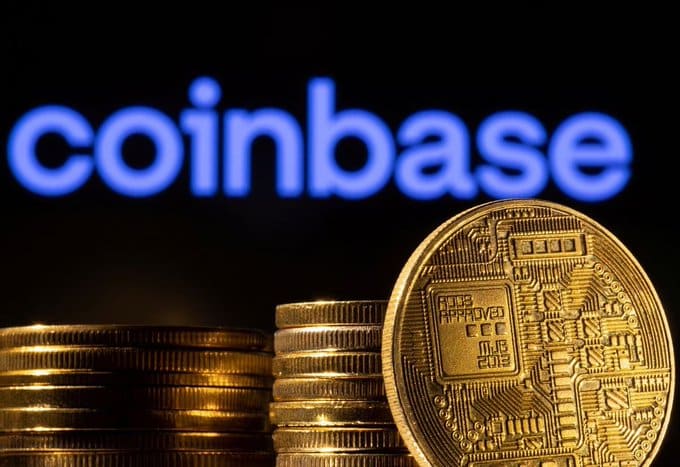
Ex-gerente da Coinbase Bags é preso
- Ishan explorou informações corporativas enquanto trabalhava na Coinbase e ajudou seu irmão a ganhar mais de $1 milhões entre 2021 e 2022.
- O advogado de Ishan Wahi instou o juiz a considerar seu status de imigração, argumentando que seu crime foi um delito não violento e ele não tinha antecedentes criminais antes de sua prisão.
- A mãe de Ishan e outros parentes próximos, bem como amigos, compareceram pessoalmente à sentença.
A juíza distrital dos EUA Loretta Preska condenou um ex-gerente de produto da Coinbase, Ishan Wahi, 32, a 24 meses de prisão por informações privilegiadas. Ishan foi preso e acusado em 2022 por fraude eletrônica e por fornecer informações privilegiadas a seu irmão Nikhil Wahi e seu amigo Sameer Ramani sobre as próximas listagens de ativos digitais na Coinbase Global. Os relatórios afirmam que o grupo obteve mais de $1 milhões em lucros negociados com as informações de Ishan entre 2021 e 2022.

O caso é um dos crimes relacionados a cripto de maior visibilidade e o segundo caso de negociação com informações privilegiadas sobre cripto perseguida pelo Departamento de Justiça (DOJ). Nikhil foi acusado de conspirar para cometer fraude eletrônica em setembro e se declarou culpado. Ele foi condenado a 10 meses de prisão em janeiro. No entanto, Ramani não foi localizado.
O procurador dos EUA, Damian Williams, disse em um declaração,
Ishan Wahi, um ex-gerente de produtos da Coinbase, violou a confiança depositada nele por seu empregador, informando outras pessoas com informações confidenciais valiosas sobre as listagens planejadas de tokens da Coinbase. A sentença de hoje deve enviar um forte sinal a todos os participantes nos mercados de criptomoedas de que as leis decididamente se aplicam a eles. O Distrito Sul de Nova York responsabilizará totalmente aqueles que se envolverem em negociações com informações privilegiadas, independentemente de sua conduta ilegal ocorrer nos mercados de ações ou no mercado de criptoativos.
Caso de Ishan para servir de exemplo
O juiz Preska ordenou que Ishan se entregasse até 21 de junho para cumprir sua pena na Fort Dix Federal Correctional Institution, com sede em Nova Jersey. Ishan havia solicitado uma sentença que não fosse mais longa do que a de seu irmão, apontando para instâncias anteriores de negociação com informações privilegiadas que terminaram com um mínimo ou nenhum tempo de prisão.
O advogado de Ishan instou o juiz a considerar o status de imigração de seu cliente e conceder-lhe uma sentença menor. Ele disse: “Afirmo que não há necessidade de este tribunal impor punição adicional. Ele perdeu o emprego. Ele perdeu sua reputação. Ele sofreu uma enorme quantidade de publicidade negativa aqui nos Estados Unidos e na Índia”.
Curiosamente, os promotores pediram que o caso de Ishan fosse usado como um exemplo para dissuadir outros usuários de criptomoedas de explorar informações confidenciais. Alguns promotores acreditavam que uma pena de prisão de três anos ou mais enviaria uma mensagem forte para os outros.
“Não foi um erro isolado – isso ocorreu em um período de dez meses […] Ter acesso ao tipo de informação a que esse réu teve acesso foi como poder ler o jornal com um dia de antecedência”, disseram os promotores .
Independentemente do tipo de ativo envolvido, os promotores têm o direito de apresentar uma acusação de fraude nos casos em que a desonestidade foi usada para obter benefícios financeiros. Dessa forma, o Departamento de Justiça dos EUA tem mais flexibilidade do que sua contraparte civil, a Securities and Exchange Commission (SEC) dos EUA, para perseguir crimes relacionados a criptomoedas. A SEC está restrita a supervisionar os mercados de valores mobiliários, mas estendeu sua jurisdição à indústria cripto, alegando que a maioria dos tokens são títulos não registrados.
A SEC também apresentou uma acusação contra Ishan e Nikhil Wahi, argumentando que suas negociações envolviam valores mobiliários. No entanto, documentos judiciais mostraram que os irmãos chegaram a um acordo com o regulador para resolver as reivindicações.







